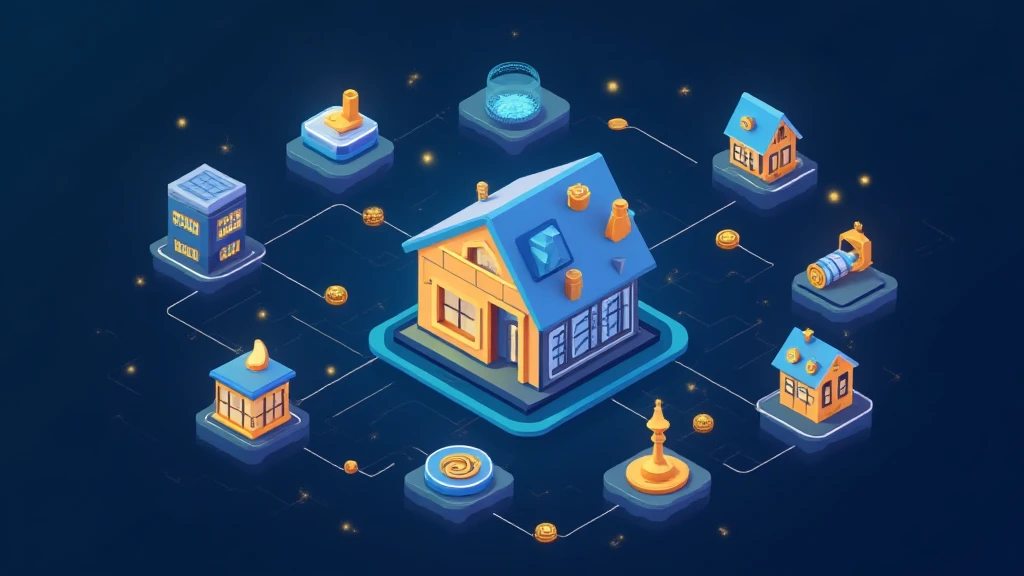Vietnam Blockchain Property Disputes: How to Navigate the Complex Landscape
As the blockchain technology landscape continues to evolve, Vietnam has emerged as a significant player in the sector with a rapidly growing user base. According to recent reports, Vietnam has one of the highest cryptocurrency adoption rates in Southeast Asia, with an estimated 12% of the population engaging in some form of cryptocurrency investment. However, with this rise comes a complex web of property disputes surrounding blockchain technology and digital assets. In 2024, there were reports of over $4.1 billion lost to DeFi hacks globally, underlining the need for clear legal frameworks and dispute resolution mechanisms.
In this article, we will explore the intricacies of blockchain property disputes in Vietnam, how users can protect their digital assets, and the measures being taken to establish a more robust framework to manage these disputes.
Understanding Blockchain Property Disputes
Blockchain property disputes refer to legal conflicts that arise over the ownership, usage rights, or management of digital assets recorded on a blockchain ledger. As Vietnam embraces cryptocurrencies and innovative blockchain applications, disputes are arising in many forms, including:

- Disagreements over ownership rights asserted by multiple individuals.
- Conflicts over smart contract terms and their enforcement.
- Legal challenges regarding the recognition of blockchain-based property in traditional courts.
For instance, the development of decentralized finance applications has led to users unintentionally violating smart contract terms, resulting in losses and subsequent disputes. Just like filing for property ownership in a land registry, proving ownership in the digital realm required clear documentation and legal backing. That’s where regulations come into play.
The Current Legal Framework in Vietnam
The legal landscape for blockchain in Vietnam is still developing. Currently, the government has put significant emphasis on regulating the cryptocurrency market. In June 2023, the Ministry of Finance issued a draft outlining regulations to secure and manage digital assets, which aims to protect users from fraud and ensure transparency.
Some key points include:
- Establishing a comprehensive legal definition of digital assets.
- Outlining measures for fraud protection and resolution of disputes.
- Providing guidelines for the registration of blockchain-based properties.
However, the implementation of these measures is still in its infancy, and many users remain uncertain about what protections are available against property disputes. It’s essential for anyone engaging in blockchain transactions to stay updated on evolving regulations.
Case Studies of Blockchain Property Disputes in Vietnam
Analyzing real-life instances of blockchain property disputes can provide valuable insights into common challenges faced by users. For example, the case of a high-profile dispute involving a Vietnamese real estate firm and a blockchain-based asset management platform brought to light various legal ambiguities. The firm claimed ownership of certain digital assets linked to real properties, while the platform argued for its right to manage and facilitate transactions involving those assets, leading to a legal showdown.
Such disputes highlight the pressing need for:
- Clear ownership documentation for blockchain assets.
- Robust smart contract audits to prevent malicious edits.
- Legal frameworks that recognize blockchain transactions.
In another case, a Vietnamese entrepreneur lost substantial funds due to an exploit in a smart contract which he had relied upon for managing crypto investments. As the dispute unfolded, both the developers and investors took opposing stands regarding the technology’s responsibilities, exacerbating the situation. The lack of legal clarity compounded this issue.
Best Practices for Avoiding Property Disputes
To prevent disputes from occurring in the first place, users should take proactive measures when engaging with blockchain technologies.
- Document Ownership Clearly: Keep detailed records of ownership and transaction history.
- Audit Smart Contracts: Regular audits can reduce vulnerabilities and ensure transparency in contract execution.
- Consult Legal Experts: Engage qualified professionals when drafting or modifying smart contracts to ensure compliance with Vietnamese laws.
- Use Secured Platforms: Utilize platforms that have strong security measures and dispute resolution mechanisms in place.
- Stay Updated: Regularly check for updates in Vietnam’s cryptocurrency regulations and practices.
By utilizing these strategies, individuals can significantly mitigate the risks of encountering legal disputes involving their blockchain properties.
The Future of Blockchain Property Disputes in Vietnam
Looking ahead, the resolution of blockchain property disputes in Vietnam will require collaborative efforts from various stakeholders, including government regulators, blockchain developers, and users. Education on both sides—understanding blockchain technology for legal professionals and regulations for users—will play a crucial role in this evolution.
Authorities are expected to enhance training for legal professionals about blockchain technologies while expanding public awareness regarding rights and responsibilities in digital asset management. This approach aims to create a more harmonious environment for blockchain users in the country, potentially reducing disputes significantly by 2025.
Conclusion
As Vietnam navigates the complex landscape of blockchain technology and property disputes, the continual development of legal frameworks and user awareness will be paramount in protecting digital assets. With the right knowledge, tools, and resources, individuals can safeguard their investments while participating in this innovative space. Until the legal landscape is more clearly defined, understanding the nuances of blockchain property disputes will be essential.
Remember, to stay ahead in this rapidly changing environment, always consult with experienced professionals and stay updated on new regulations. The future of blockchain property management in Vietnam is promising, and by following these guidelines, you can minimize your risk of disputes and maximize your potential in this fascinating digital age.
For more insights into cryptocurrency and blockchain solutions, visit hibt.com and learn how to navigate the ever-evolving landscape of digital assets.
Author: Nguyen Phuc
Cybersecurity Specialist and Blockchain Consultant, has published over 30 papers in the cryptocurrency field, specializing in the audit of leading projects and providing insights into the future of blockchain in Vietnam.








